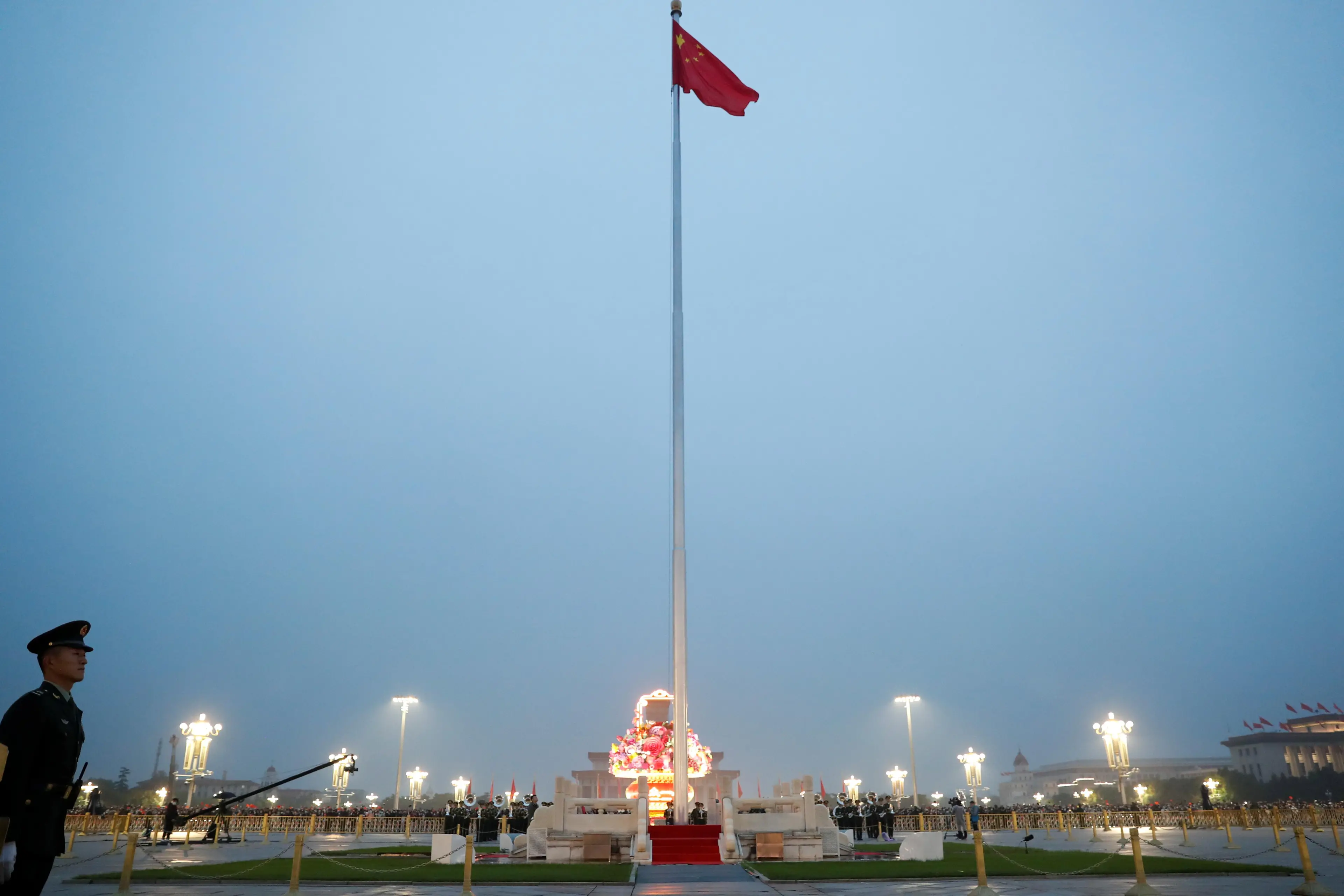PHOTO
The big story of the 21st century will be the ascent of China and a shift in both economic and political power from West to East.
This has been a long time coming, but we are nearing some kind of a climax. Several economists forecast that by 2024 China’s economy as measured by GDP will overtake that of the US. The exact year matters less than the ironclad fact that China’s economy will overtake America’s in this decade. This will also have huge geopolitical ramifications. You can ask any sporting champion what they feel like when they are dethroned from pole position. They will attest to psychological difficulties in accepting the new reality. So how will America and its new president deal with what is unfolding?
Donald Trump had a point when he questioned some of China’s behavior, but his tariffs may simply haveemboldened Beijing. For example, the ban on Huawei, while probably justified, led China down the path of aspiring to become self-sufficient in semiconductor technology. Beijing’s economic blueprint makes technology and the quest for self-sufficiency a key priority, and China intends to become a world leader in artificial intelligence, quantum computing and robotics within the next 15 years.
Joe Biden has made clear that he will remain tough on China, and he needs to, because the narrative in the US, in both major parties, has become distinctly skeptical of Beijing. We can expect the Biden approach to be more consistent than the Trump approach.
On the political stage, Biden will revert to the US mantra of defending democracy and human rights. Therefore, we can expect him to be more outspoken on mass imprisonment of the Uighur population and other human rights violations within China — not just in Hong Kong.
Biden, who is close to the labor unions, will view trade through the lens of protecting American jobs. This will have moved up on his priority list now that the pandemic-ravaged US economy faces mass unemployment. It will be Biden’s job to keep his country safe from the virus and to fight growing inequalities. The latter can only happen if he puts the nation back to work. The long lines in front of food distribution centers will grow smaller only when people receive paychecks again.
Climate change will be another priority for Biden. He will address these concerns, because they are his too and because the left wing of his party will hold his feet to the fire.
This is where the US can play a big leadership role, when it comes to issues such as a universal carbon tax applying globally. China has vowed to become carbon neutral by 2060, but it is not necessarily delivering on this issue judging from how many new coal-fired power plants have been fired up.
Let there be no confusion: Many of these battles will not be fought in China or in the US, but in third countries. The US will have to deal with what the new assertiveness of China’s foreign policy means in the South China Sea, the Straits of Taiwan, across the stretch of the Belt and Road countries in southeast and central Asia, the Middle East and Africa. One could argue that the US dropped the ball with regards to the geopolitical ramifications of the Belt and Road Initiative and China’s raw material / investment push into Africa and Latin America, which had been in the making for several decades.
China’s “charm offensive” will feel very different from Pax Americana. The latter had economic and geopolitical power elements for sure, but it was underpinned with concerns for democracy and human rights, and aimed to create allies rather than vassal states. China’s approach is more economically minded and the end goal is to promote its own economy and position of power than a level playing field. Going forward this has ramifications for the geographies mentioned above.
Lastly and always, there is money: The big asset managers are all eager to broaden their base in China. The bifurcation of economic development East and West of Suez during the pandemic has accelerated this trend, if anything. China was the first country to be affected by COVID-19. Its economy was also the first to emerge from the pandemic comparatively unscathed. This exerts an unimaginable pull for money managers’ dollars.
Beijing has opened the capital markets somewhat, for instance allowing foreign financial institutions to take majority control of their divisions. More open money markets work both ways. They make foreign investors feel more comfortable and by that virtue attract more foreign investment. This is a clever move from the Chinese perspective in more ways than one, given the big influence Wall Street lobbyists have on Capitol Hill.
Whichever way we look at this story, the post-1945 Pax Americana is about to run its course and Beijing has ascended as a force to be contended with. That does not mean that Washington and its geopolitical influence are riding into the sunset. It means, however, that Beijing is the vital new kid on the block and will not shy away from asserting itself.
- Cornelia Meyer is a Ph.D.-level economist with 30 years of experience in investment banking and industry. She is chairperson and CEO of business consultancy Meyer Resources. Twitter: @MeyerResources
Copyright: Arab News © 2020 All rights reserved. Provided by SyndiGate Media Inc. (Syndigate.info).





















